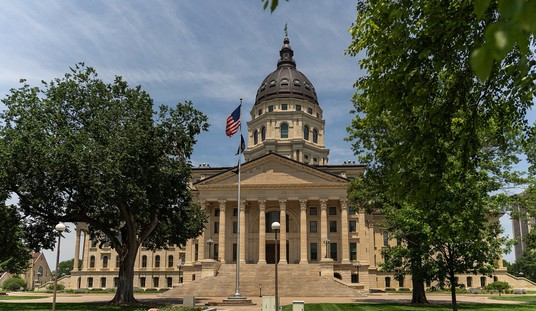As the predictable finger-pointing continues to rage on Capitol Hill, social media, and throughout the country over the current state of health care, I decided to toss in my two cents on healthcare— the perennially divisive issue that affects untold millions of Americans, with no viable (agreed-upon) solution in sight.
As I've noted in the past, I speak here as a former financial planner (CFP), which I mention only to suggest that while I hold professionally informed opinions on issues pertaining to investment strategies, portfolio management, estate planning, healthcare coverage, and such, they are my opinions — meaning there are, of course, other opinions that may or not may not be viable, as well.
Presently, there exist few issues in America more divisive. When I refer to "healthcare" in a general sense, I mean not only healthcare itself, as in hospitals, doctors, pharmaceuticals, and such, but also health insurance and healthcare exchanges.
This brings us to Vice President JD Vance (for whom I have the utmost respect, and would be inclined to support in 2028 if/when he announces a run for the presidency) and comments he made on Thursday about healthcare, as part of a larger discussion about the GOP's various battles with the Democrat Party.
Here's JD (emphasis, mine):
They [the Democrats] said 'we really want to address the health care problem confronting the American people.' The president said, 'absolutely, we agree — we want to discuss the health care problem in front of the American people. In fact, you people screwed it up with Obamacare — the Unaffordable Care Act, and now you're coming to us and now you're coming to us and saying less fix it.' Great! Let's fix it.
[...]
Right now, the American people get crap health care and they pay way too much for it. You have people who pay thousands of dollars a month in premiums for a family of four, a family of five. And the access to health care is really low. ... This system is broken. The Democrats broke it, but who cares — we’re going to work together if they’re willing to fix it.
And the interesting thing is ... people come to the president and say ... 'Don't talk about health care; that's a graveyard for Republicans. Republicans always lose on health care.' And the president's like, 'I don't care about the politics of it. This system is screwed up for the American people. We need to fix it. So let's go do it; politics be damned.'
I love that. That's leadership. And that's exactly what we should want coming from the White House.
Yes, that's exactly what we want coming from the White House, in this respect.
.@VP: "Right now, the American people get crap health care and they pay way too much for it. You have people who pay thousands of dollars a month in premiums...This system is broken. The Democrats broke it, but who cares—we’re going to work together if they’re willing to fix it." pic.twitter.com/sN0SeojcYg
— Rapid Response 47 (@RapidResponse47) November 20, 2025
All of the above said, I have several thoughts.
First, as I suggested earlier, untold millions of Americans are fed up with the high costs of medical care, prescription drugs, tests, doctor visits, and, of course, their health insurance premiums. That's a given.
But there are drawbacks to generalization — about almost anyone or anything.
For example, hop on Facebook or X, and it won't be long before you see posts about "Men do this," or "Women do that," or even worse, "White people believe..." or "Black people believe..." as if various groups, demographics, or things are homogeneous or monolithic, which is far from the case.
On a macro scale, there exist two divergent views on healthcare — and how to "fix" it.
One view, largely held by Democrats and other left-wing proponents of government-run health care, supports expanding the federal government's role in guaranteeing universal coverage (translation: massive wealth redistribution), which includes ideas like so-called "Medicare for All." It aims to provide government-managed health care for all Americans.
Proponents argue this could reduce overall costs, eliminate premiums and out-of-pocket fees, and offer benefits not available in private plans. Sound too good to be true? Of course it does; it would require millions of Americans to give up their current private insurance plans, which is a likely insurmountable obstacle to public support.
The opposing view, largely supported by Republicans and in conservative policy circles, holds that health insurance itself is a privilege earned through employment, or self-paid, rather than an essential benefit guaranteed by government.
This view favors limiting government involvement and supports policies like work requirements for Medicaid recipients. Republicans generally show more satisfaction with current healthcare costs and quality, and resist broader government-run healthcare systems.
That last point is an example of why I disagree with JD's generalization that Americans in general "get crap health care."
Incidentally, I had elective surgery several years ago, which cost north of $20,000. Not only was the surgery and aftercare excellent, but my total out-of-pocket cost was a "staggering" $139. Moreover, my monthly health insurance premiums are beyond reasonable. Just sayin'.
ALSO CHECK OUT: Bernie Sanders' Opposition to the Amended CR, Rant About 'Healthcare for All' Is One for the Books
So, How Do We 'Fix' What's Broken, Without Throwing Out the Baby With the Bathwater?
While there are no simple or singular answers to the "fix," below are a couple of reasonable takes.
First, this, from the Heritage Foundation:
[An] option would redirect our current system—putting patients and doctors in the driver’s seat, making health care providers and insurance companies compete for customers.
Long before Obamacare came along in 2009, Washington was already in the business of picking winners and losers in health care.
Instead of allowing individuals to decide where and from whom they want to get their medical care, Washington makes that call, selecting various special interests to qualify for those tax dollars.
And then came the mother of all meddling: Obamacare, with a huge push to not only expand Medicaid, but to take over what was left of the private insurance market through more government mandates and regulations.
Premiums doubled in the first four years of Obamacare. ... But while premiums have gone up, choices have gone down.
[...]
What if we tried the completely opposite approach and put individuals and patients, also known as consumers, in the driver’s seat? As opposed to the government deciding which medical and insurance providers get your tax dollars, you decide.
And that’s just one example of what can happen when the operating philosophy is “more choices and competition” as opposed to “one size fits all.”
Individuals and families have different needs and preferences when it comes to most things in life—including their health care.
And this, from the Cato Institute:
At the highest level, existing arrangements should be repealed because the health care system costs too much and delivers too little. Readers surely know that the U.S. spends twice as much per capita on health care as other developed countries but gets worse results. Spending more doesn’t buy better outcomes for many reasons, but the inescapable conclusion is that the system is grossly inefficient.
Special interests dominate our federal and state political systems, and they want ever-growing piles of money. Existing arrangements satisfy their desire by making health care more and more expensive. Health care businesses don’t want to be held responsible for improving Americans’ health, however, so doing that is not a condition for receiving money. Every year, billions of dollars are wasted on services that are unlikely to help patients live longer or better.
I would base a new system on Social Security, a popular program that gives people cash to spend as they wish. In 2023, the federal government spent $1.9 trillion on health care, an average of more than $5,600 per American man, woman, and child. If the government deposited these funds into interest-bearing savings accounts, most people would quickly accumulate sufficient wealth to meet their medical needs. I prefer the old Finkelstein who explained “Why Cash Is Better” to the new Finkelstein who would give everyone insurance.
A program modeled on Social Security would also reduce the public’s ability to interfere with health care decisions that should be made privately. It would let consumers decide which services to purchase and how much insurance to buy. With luck, a norm of consumer sovereignty will arise, as patients push back against public officials and bureaucrats who try to stick their noses where they do not belong.
If this sounds a lot like President Trump's idea, there's a reason.
As my colleague Jennifer Oliver O'Connell reported on Tuesday, Trump is pushing Congress to back sending healthcare subsidies directly to Americans instead of insurance companies.
As O'Connell suggested, Trump's plan might be an "uphill battle," but here's the thing:
This president is outstanding at thinking outside of the box, as he has done on multiple occasions with often surprising results — even if it sometimes seemed like the odds were stacked against him.
So, yeah, it's beyond time to shake up the American healthcare system — and Donald Trump is just the one to do it.















